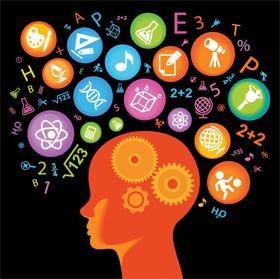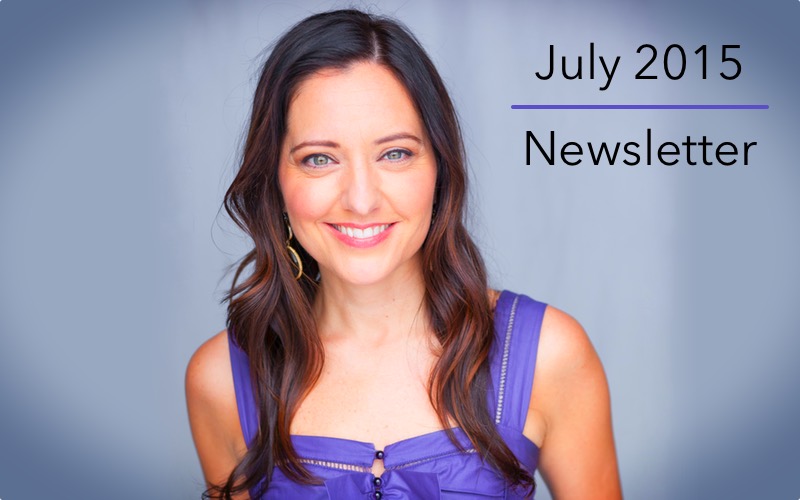We Are All Special Needs
I’m all for thinking outside the box, but not for putting people in boxes.
I’m for categorizing, but only for the purpose of helping that person get the tools they need to succeed. While you read this post, I want you to contemplate the idea that you are a special needs individual who can relate to any and all of the individuals we currently categorize as special needs, because ultimately, we all have special needs in some form.
I first discovered the idea that we are all special needs during college at Loyola University in Maryland, where I majored in Speech Pathology. Upon graduating, I was led to the extraordinary children that I taught and wrote about in my book, Solitary Genius. Solitary Genius was a bit of a large onion that I peeled away at to find my true message within the pages of my manuscript. I was certain that I wanted the reader to see that they could relate to children who are classified as “special needs.” We all have special needs within every single one of us. Society has chosen to put people in a box for differences such as ADD, ADHD, dyslexia, being on the spectrum, and learning disabilities, to name a few. I know because I was put in one of those boxes – a learning disability box. What I wish I knew then was that this “disability” that made me feel ostracized from my peers and individuals was actually a gift.
I believe we should view every special need or learning difference as a learning tool, a view to our soul. Every child and every person on this planet processes differently. We have just grouped the most common ones together and called them “normal.” There is nothing normal about anyone. That is what is so fascinating about individuals. What if someone walked up to a kid and said, “This is great. You process information differently than the average individual and that is going to take you far in life.” Instead we say, “You have learning disability, dyslexia, ADHD or are on the spectrum, oh no.” What if we change the conversation and say, “Oh yes, this is fantastic to have found you process or learn this way because it is revealing a picture of your strengths and your purpose in life.”
I taught children who are considered in society to have the most severe communication challenges, yet I have found over the 17+ years I have worked and lived in New York City, I have come across more adults that I work with who have challenges that are equal to or greater than those of the children I taught. This is in no way meant to trivialize learning challenges. Over my career, I have found that the same amount of time and energy that I have spent on a special needs accommodation for a child can be spent equally on a grown adult in the workforce.
For instance, it takes time and patience to teach a child sequencing for a specific task through repetition. Then,that same patience and time can be used on a grown adult in the workforce who because of their anger management issues, but because of their anger management issues, you must learn to navigate and calm their tempers before they flare up.  And what about the boss who has piles of disorganization all over his office? Is it not a special need to require time in order to organize without becoming frustrated? There is not one person on this planet that does not have some sort of special need, emotionally or physically. In some way, a special accommodation is made for every individual whether they are conscious of it or not. Forbes Magazine featured CEOs of major corporations who also happen to have ADHD on their covers. How did these individuals fall under the “special needs” category? They are talented people whose minds are wired differently than the norm, and because of this, they excel and run major organizations.
And what about the boss who has piles of disorganization all over his office? Is it not a special need to require time in order to organize without becoming frustrated? There is not one person on this planet that does not have some sort of special need, emotionally or physically. In some way, a special accommodation is made for every individual whether they are conscious of it or not. Forbes Magazine featured CEOs of major corporations who also happen to have ADHD on their covers. How did these individuals fall under the “special needs” category? They are talented people whose minds are wired differently than the norm, and because of this, they excel and run major organizations.
There are people who won’t see your brilliance immediately, or maybe ever, but on the same coin, there are people whose brilliance you won’t see, either. This does not mean it does not exist. It merely means that you process differently than the other individual, and vice versa; the reason they don’t see your brilliance is that they too are limited to their own processing abilities. No one can see it all. We are human, after all. But if we recognize that we will not be able to see the strengths and weaknesses in everyone, then we should all be able to find a common ground of compassion for those we do not understand. My message is this: forget those who may have insulted or not believed in you during your journey. They had the same experience somewhere. Instead, focus on finding and knowing your special needs, because ultimately, that is what makes you the individual, magnificent soul you are.
What if we all decided to recognize that we are all special needs?
Is this possible? And if so, how does that change the connotation of the phrase “special needs” and how we relate to others? What if we were instead categorized into the following: deep thinkers (maybe you put introverts & Asperger’s in this category), amazing multi tasking abilities (ADD & ADHD), soulful energy teachers (some of those on the spectrum), think-outside-the-box individuals (learning disabled), and visually gifted(dyslexic)?
What if?
I think the first, the most obvious thing is that we could find a way to relate to those we might have thought were unreachable.
-Mo
Want to receive Mo’s newsletter in your inbox every month? Sign up here.

